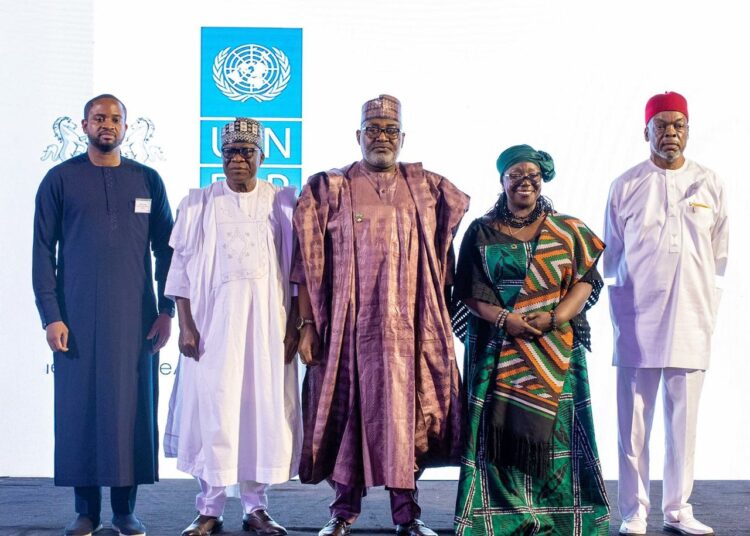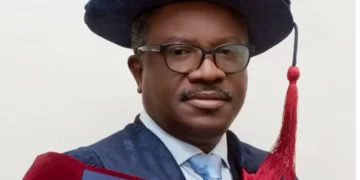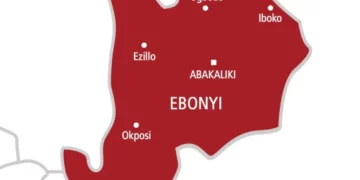The South East Development Commission (SEDC) has announced plans to grow the region’s economy from $40 billion to $200 billion within the next decade as part of an ambitious development drive anchored on infrastructure, industrial revitalisation and youth empowerment.
Managing Director and CEO of SEDC, Mark Okoye disclosed this on Thursday in Abuja during a roundtable commemorating SEDC’s first 100 days.
The event with the theme: “Rebuilding Legacy: Co-Creating a New Era of Growth in the South East,” brought together key government figures, development partners, and stakeholders to strategise on the region’s future.
“One of our strategic objectives is to grow our economy from $40 billion to $200 billion in 10 years, working closely with our development partners, state governments, the organised private sector, CSOs, and academia,” Okoye said.
The MD also revealed that the Commission would unveil its comprehensive Strategic Development Plan by December, detailing a roadmap to drive high-impact, region-wide infrastructure projects and unlock inclusive economic growth.
Okoye further outlined a suite of intervention programmes including, South East Agro-Mechanised Farming Programme targeting 50,000 acres with infrastructure support, the South East Industrialisation Project focused on reviving moribund industries and Renewed Hope Housing and Market Development Project, designed to improve housing and trade infrastructure.
Other programmes include Venture Capital Support for entrepreneurs and startups, Youth Entrepreneurship Programme targeting young talents and Sports Infrastructure Scheme to promote youth engagement and talent development.
“We are committed to delivering impactful and people-centered projects,” Okoye said. “But we cannot do this alone, we need collective effort from all stakeholders to transform the region sustainably.”
Representing the Deputy Speaker of the House of Representatives, Hon. Ben Kalu at the event, Chairman, House Committee on SEDC, Hon. Chris Nkwonta, said the roundtable was more than a ceremonial gathering but a shared commitment to reshape the region’s destiny.
“This engagement speaks to both our history and our shared aspirations,” Nkwonta said. “The South-East is one of Nigeria’s most industrious zones, home to over 29 million people, more than 60% of whom are under the age of 30. It’s a blessing we must wisely harness.”
He also called attention to lingering hurdles which include infrastructure gaps, lack of enabling environments, and underutilised economic assets.
For his part, the Minister of Regional Development, Alhaji Abubakar Momoh, underscored the strategic importance of the Commission, describing its establishment as a vital step toward decentralising service delivery and strengthening regional governance.
“The creation of the South East Development Commission is a prime example of decentralising service delivery and boosting transparency,” Momoh noted. “The SEDC is answering the call for strategic partnerships, innovation, and inclusive development with commendable energy and clarity of purpose.”
He emphasised the need for synergy among stakeholders to confront challenges such as youth unemployment, social exclusion, and infrastructure deficits.
“The South-East is rich in talent, resilience, and enterprise,” the minister said. “But we must ensure that women, youth, and vulnerable groups are not left behind in our pursuit of shared prosperity.”
The Minister also appreciated the efforts of international development partners, particularly the United Nations Development Programme (UNDP), for their ongoing contributions to sustainable growth across the country.
UNDP Resident Representative, Elsie Attafuah, praised the creation of the SEDC as a bold step by the President Bola Tinubu’s administration toward restructuring Nigeria’s development architecture in a way that reflects the unique needs of its regions.
“This is a profound affirmation that the administration is listening and acting,” Attafuah stated. “The South-East is uniquely positioned as a strategic hub for enterprise and innovation. Its indigenous apprenticeship model is arguably one of the largest informal venture incubation systems in the world.”
She called for urgent action to harness the region’s high literacy rate, robust academic institutions, and entrepreneurial potential.
“This roundtable is not just a ceremonial gathering. It is a pivot point. With the launch of the SEDC roadmap, we can reimagine the South-East as a powerhouse of industry and a magnet for inclusive investment.”
I am a dedicated reporter at Leadership Newspaper, where I bring a keen eye for detail and a passion for storytelling to a diverse range of topics, including business, sports, politics, and international affairs. My work aims to provide readers with accurate, timely, and engaging reports that break down the complexities of current events.
From covering high-profile political shifts and court cases to exploring the latest in economic developments and sporting events, I strive to offer insightful and comprehensive coverage. My stories include in-depth analyses of economic trends, detailed political reports, and human interest pieces that highlight significant global and local events.
I am committed to delivering news that informs and fosters a deeper understanding of the issues shaping our world. My goal is to engage readers with well-researched and thought-provoking content





